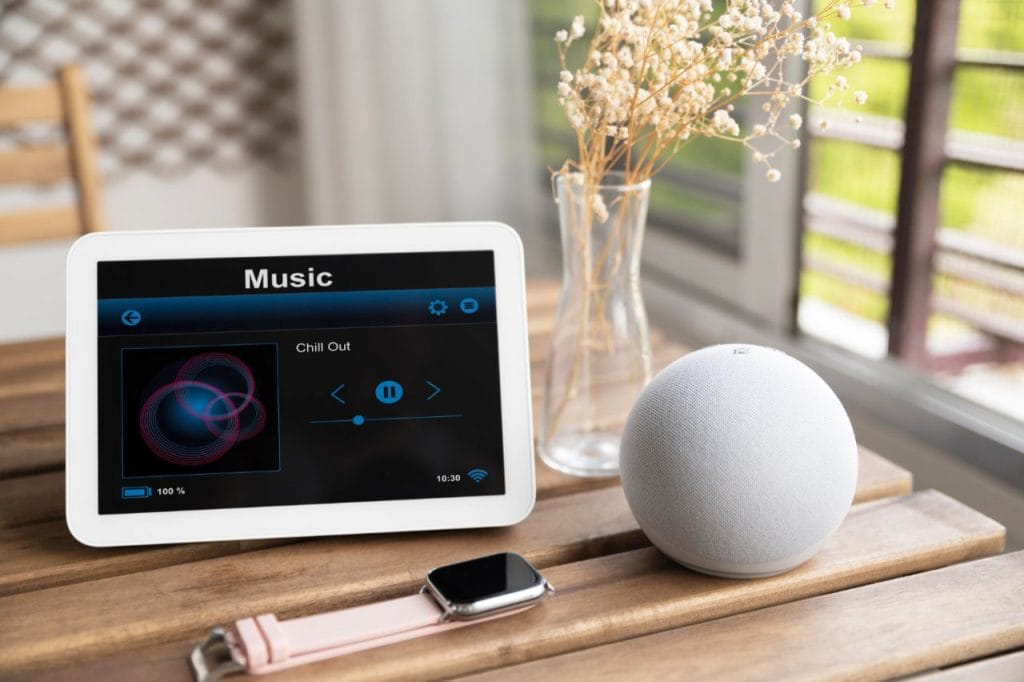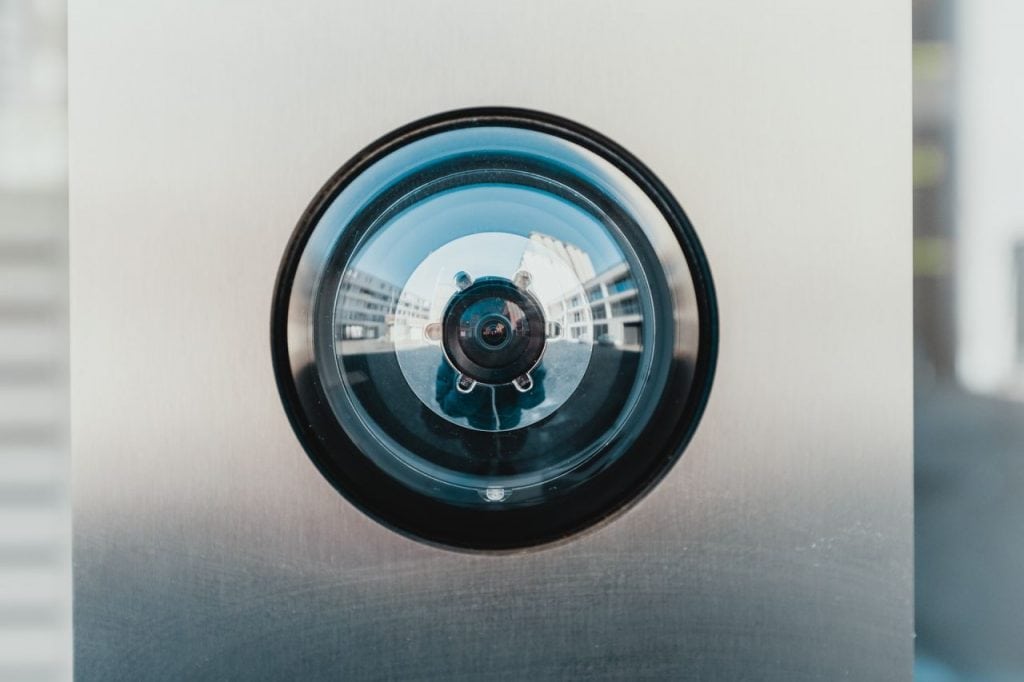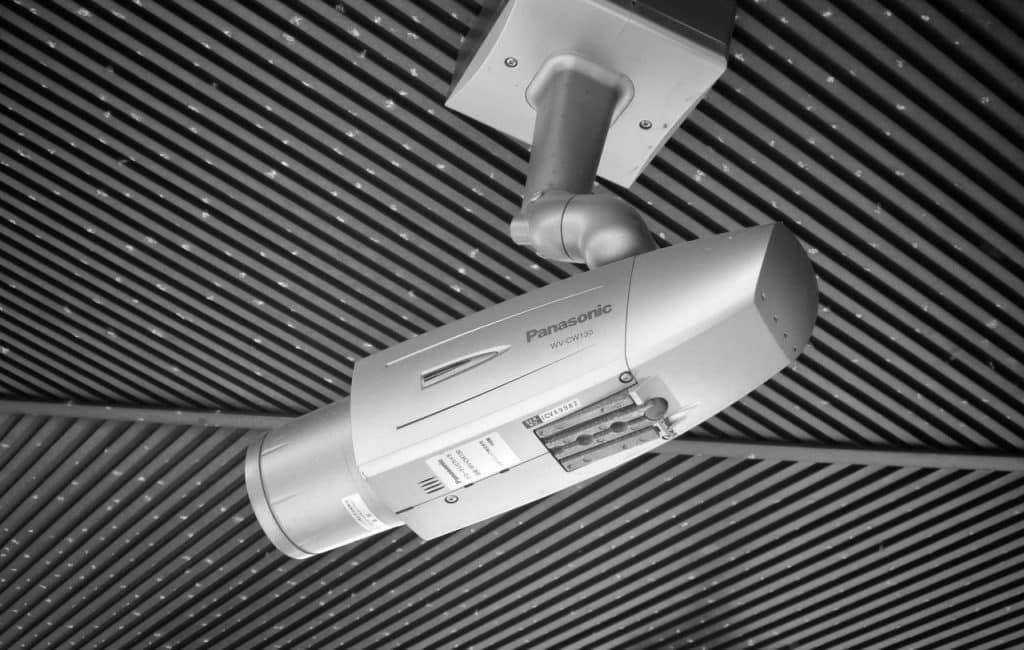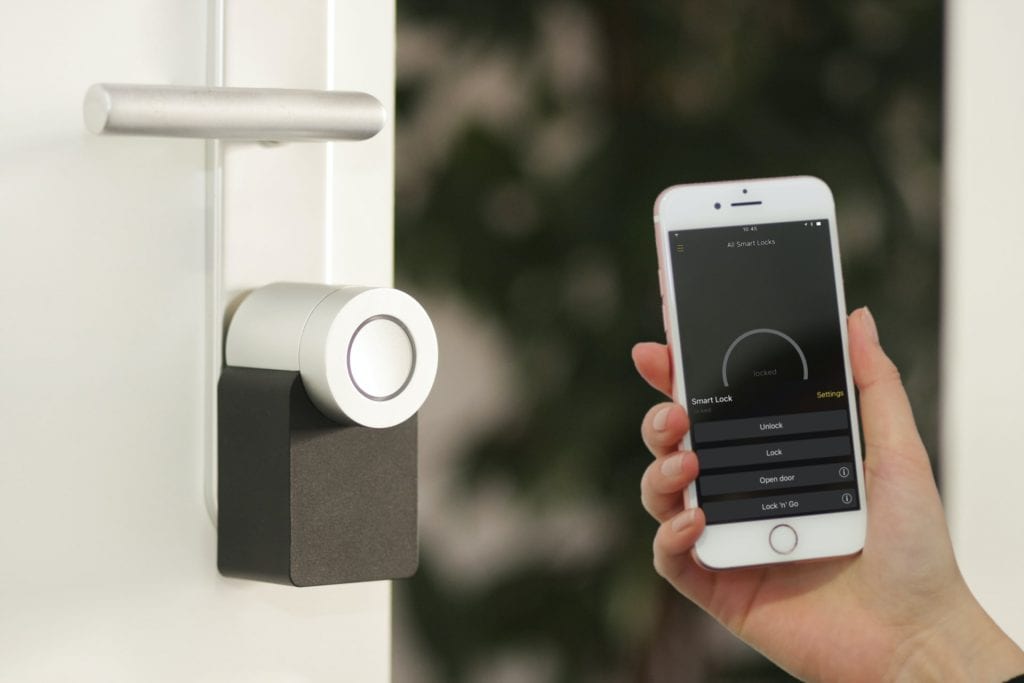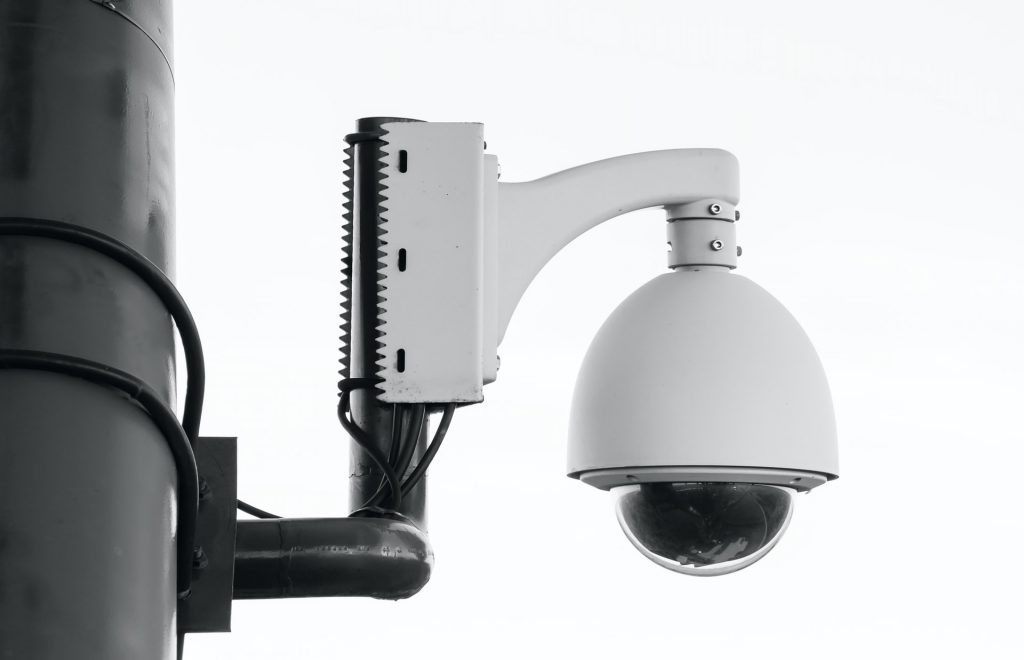If you're like most homeowners, you may be wondering if wireless alarm sensors have batteries. The good news is that most of them do—although there are a few exceptions. In this blog post, we'll look at the different types of wireless alarm sensors and tell you which ones have batteries. We'll also give you some tips on how to change the batteries in your wireless alarm sensor modules. So read on to find out more!
Does A Home Security System Use Batteries?
No matter what type of home security system you have, it will use batteries. There are typically batteries installed for wired security systems to provide at least a minimum of protection if your electricity goes out. If you have a wireless system, there are rechargeable batteries that you can use.
Typically, these batteries last a long time and warn you well in advance if they are starting to run out.
Security System FAQs
What Is The Purpose Of Security In Structural Areas?
The purpose of structural security is to prevent or slow down incidents around your building. An intruder wants to enter and leave your building with the least resistance. With structural security solutions, you can make your building unattractive as a target for burglars.
What Is a Security Facility?
Facility security is the protection and measures taken toward protecting a building or other physical location. Among the facility's components, security is access control, or the protection against entry by unauthorised persons, fire detection and suppression, and emergency-response planning.
What Are Hazardous Security Systems?
Hazardous Material Emergency Alarm Systems (HMEAS) are stand-alone systems for protecting people from exposure to dangerous substances in the workplace.
What Is The Difference Between Security And Privacy?
Privacy relates to any rights you have to control your personal information and how it's used. On the other hand, security refers to how your personal information is protected. Your data — different details about you — may live in many places. That can challenge both your privacy and your security.
What Is An Example Of Security?
Stocks, bonds, mutual funds, variable annuities, and investment contracts all are types of securities. A few other types of securities include debentures, futures, puts, calls, warrants, and mineral rights.
How Do I Know Where The Batteries Go?
When you need to replace your batteries, your control panel will likely tell you exactly where that battery needs to go. Then, you can either charge the batteries or install backups (which is recommended). Some components of your system may not have batteries; they will work until they no longer work, and then you need a new piece.
Typically, the following components need batteries to work:
- Control panel
- Key fob
- Keypads
- Door sensors
- Window sensors
- "Smart" sensors and pieces
- Wireless cameras
- Glass break detectors
- Smoke alarms
- CO2 alarms
You May Need To Alert Monitoring Company
Alarm monitoring companies need to know what you are doing because if they suddenly notice that the signal goes out, they might think that something is wrong. So you need to alert the company that you will be doing it, and nothing will happen.
They might tell you that it is a good time to do something else to your systems, like reset your keywords or codes or update your system.
Know What Batteries Your Security System Needs
You should tell what kind of battery your security system needs just by looking at the battery – it will say it. You can also look at your instruction manual where it will tell you. There is no "one size fits all" option for the batteries used in a home security system. Typically, AA batteries, AAA batteries, or rounder, flat watch batteries are used.
However, you don't need to replace the battery; you need to charge it. There will likely be a USB port where you can charge the device in just a few hours – like when you are making dinner or are present in the main part of your home.
Restart Your System
Once you have replaced the batteries or charged the battery to complete, you may want to restart your device. This can help keep your system running efficiently to get the most amount of time between charges.
How Long Do ADT Sensor Batteries Last?
ADT has been installing alarms and security systems for over 100 years. Therefore, they have all the experience in the world when it comes to monitoring a home or business. But what about their batteries? When you decide which company to go with, it is crucial to be knowledgeable about every aspect of your alarm system, including battery life.
ADT has found that their batteries typically last approximately three years, but this varies depending on factors like temperature and usage. For example, if you use your alarm system frequently or live in a colder climate, it could be much less than an average of three years.
Don't worry if you've been thinking of getting an ADT sensor, but you're unsure about battery life. In this blog post, we discuss all aspects of ADT sensor batteries so that you can make an informed decision. So let's jump right in, shall we?
How Long Do Batteries Last In Wireless Alarm Systems?
As a general rule of thumb, wireless alarm systems use AA batteries with an average lifespan of three to five years, but this can vary depending on the number of times it's been used and where you live. However, the primary determinant of battery life is the model and type of battery your sensor uses.
Furthermore, if your wireless system uses a lot more power than usual due to frequent usage or living in colder climates, then the life span could be much less. The same case applies to ADT sensor batteries. Typically, these batteries will last three to five years, but this can vary depending on the model.
Factors Affecting Adt Sensor Battery Life
Although the average lifespan of ADT sensor batteries is three to five years, many factors affect this period. These include:
Battery Types
The battery type is among the factors that impact the life of a battery. There are two main types, alkaline and lithium-ion. Alkaline batteries typically have higher power than their lithium-ion counterparts, but they also have some disadvantages. On the other hand, lithium-ion batteries tend to be lighter weight and can last up to twice the amount of time as an alkaline battery, but they also have some disadvantages of their own.
In the end, it is up to you to decide which type of battery will be best for your particular needs or personal preference.
Heat And Cold
Temperature is among the top factors affecting sensor operation. Heat and cold will affect the life of a battery. For example, if your ADT sensor is in an extremely hot environment, its power may drain significantly faster than recommended.
Likewise, using it for very long stretches indoors during extremely cold conditions can also be problematic as batteries tend to function at their best when stored between 50-77 degrees Fahrenheit.
Liquid And Humidity
Another factor contributing to battery life is the level of liquid and humidity around the sensor. For example, if you live in a dry, desert climate, your sensor's batteries may last longer than someone who lives in an area that regularly experiences heavy rain or fog.
Signs You Need To Replace Your Alarm System Batteries
Periodically, the batteries in your alarm system need to be replaced for optimal performance. Before you determine when to replace the batteries, you'll have to check your system to see what kind of power source it uses. Some systems are operated on electricity, while others exclusively use batteries. Others use a combination of both. Northeast Battery can provide expert advice on finding the right batteries for your alarm system and replacing them as needed.
Typical Alarm System Configurations
Before deciding when to replace the battery on your alarm system, it helps to know what kind of power configuration your system has. Control panels that control the system are usually operated with electric power. However, they may have a backup battery that produces extra power when needed. Hardwired smoke detectors are often run on battery power. Motion detectors are often powered exclusively by batteries. Security cameras are frequently powered by electricity, but some cameras are operated by battery power, and others use a combination of both.
When To Replace An Alarm System Battery
Regardless of the type of system you have, there are several ways to determine when to change the battery.
Age
Although there is some variation in battery longevity, most batteries in alarm systems today will last somewhere between three and five years. Battery lifespan is affected by the kind of batteries you use and how often you use the system. For example, motion-sensor batteries typically last for about four or five years, but the newest models have an even longer lifespan of about seven years. As a general rule, you should aim to replace the batteries in your system at the five-year mark if the batteries have not yet been replaced since you installed the system.
Low Battery Warning
Sometimes, you'll know that it is time to replace the battery on your alarm system if the low battery warning comes on without good reason. For example, suppose the low battery indicator light illuminates your system even though it hasn't used backup battery power in a while. In that case, a battery with little remaining longevity may be the underlying cause. However, suppose you notice that the battery's low warning light stays on. In that case, it is probably time to contact an expert from Northeast Battery to look at the system and replace the battery if necessary. When you replace the battery, make sure to get a compatible replacement for the battery system you currently use in the alarm panel.
Beeping Keypads
If the keypad for your home alarm system starts beeping, it's a sign that the power supply is low and the battery might need to be replaced. The keypad may infrequently beep at first, but it will beep more consistently as the power supply drains. Replacing the battery will stop the annoying beeping and keep your alarm system working properly, which in turn keeps your home safer. When in doubt, you can check the owner's manual to learn more about what the beeping sounds indicate.
How Often Should I Replace Alarm System Batteries?
The first question to ask is, does your home security system even have batteries? Some alarm systems run off battery power, and some run off AC power through a wire in the wall.
However, most modern security systems use hardwiring electricity and batteries. Here are a few common alarm set-up scenarios :
- Backup Batteries are commonly installed to account for power failures.
- Battery-Only Devices are a great option when access to an electrical source isn't readily available.
- Control Panels usually run on AC power but contain a backup battery
- Hardwire Smoke Detectors usually contain backup batteries
- Motion Detectors commonly run entirely off battery power due to their isolated placement.
- Home Security Cameras can be hardwired, battery-powered, or use a combination.
Batteries Can Help Solve Accessibility Problems
Batteries are typically the solution when AC power can't reach a security feature. Fortunately, the lifespan and power capacity of batteries are constantly being improved. Batteries are slated to continue improving to a vast degree in the coming years.
If you do have batteries in your alarm system, then you can save yourself a lot of trouble, inconvenience and late-night service visits by changing out batteries on a regular schedule.
The Cost Of Replacing Alarm Batteries
A good rule of thumb is to change backup control batteries about every 3 to 5 years, depending on the system, type of batteries and how often the system is in use.
Motion sensor batteries and the batteries on window and door contacts also last about 3 to 5 years, but some of the newer devices coming out can last as long as seven years.
Hiring a technician to check all of your batteries is probably not worth the cost and effort. Instead, you are better off just going ahead and replacing any older or questionable batteries in your system while the technician is there.
Changing Security System Batteries
Diy Vs. Hiring A Technician?
Suppose you have a basic understanding of electrical devices and feel handy. In that case, it's usually quite easy to replace security system batteries on your own, but we advise customers to hire a professional if they have any concerns.
What Type Of Battery Does My Alarm System Need?
Some alarm systems use 9 volt or AA batteries, while others use specially designed batteries. Contact your alarm system provider if you aren't sure what type of battery is needed for your home security system.
If you choose to venture into replacing a battery on your own, be sure to use the same voltage rating and amp-hour rating already installed in each device. Those with motion detectors should be prepared to work from a ladder to access those devices.
Quick Tip: Use a sharpie and a piece of tape to mark the replacement date on each battery
Power Outages And Backup Control Panel Batteries
Although control panels that run entirely off battery power exist, most professionally installed control panels are set up to run off AC power. They include backup batteries in case power is lost.
Backup control panel batteries are designed to run for about 24 to 48 hours before going dead. However, the average power outage here in Virginia lasts less than two hours, so these systems can typically cover the gap without any problems.
Backup Security System batteries will recharge using the AC power connection when power is restored.
Dead?
Suppose your home alarm system encounters a scenario in which the backup control panel battery is run long enough to go completely dead. In that case, the event may cause residual damage to the battery in what is referred to as "deep-cycling."
Alarm manufacturers have solved this problem with most installed systems today. Still, older systems are at risk of deep-cycle battery damage, which can drastically reduce the life and effectiveness of a control panel backup battery.
Can Low Batteries Cause False Alarms?
If you have an elderly family member that gets confused by the alarm system, it's a good rule of thumb to schedule a battery replacement for them about every three years to avoid any issues or problems.
Although a low battery in a motion sensor typically sends a message to the control panel, an unreliable power source can trigger a false alarm.
Regularly Replacing Batteries Helps Reduce False Alarms
False alarms create unnecessary stress for anyone, but especially for elderly customers, many of whom get upset and confused. In addition, the confusion can be greatly worsened if the alarm goes off in the middle of the night.
Sometimes additional training can help, but no one wants grandpa getting riled up in the middle of the night for no reason. So to help avoid the problem altogether - replace alarm system batteries on a regular schedule.
Is Alarm Battery Technology Improving?
Alarm manufacturers have solved the deep-cycle problem in backup control panel batteries and diligently improved battery life spans and energy outputs.
Twenty-five years ago, battery-powered devices weren't even an option. However, we've already seen a marked improvement in battery life spans since their first introduction and expect the trend to continue as technology improves.
Control panels are also becoming more advanced, and many use less energy while taking up less space.
Is It Time To Upgrade Your Alarm System?
Not only are alarm batteries getting better and lasting longer, but alarm technology, in general, continues to improve. For example, security companies now provide HD video doorbells, smart home security features, and fantastic home security camera options, like CCTV and Videofied.
However, it's probably unnecessary to upgrade all these things at once. If you purchased an alarm system 5 to 10 years ago, don't feel like you have to rush out and get all the latest and greatest security features. Instead, consider upgrading your home security system over time, adding a few new components every few years.
- SimpliSafe - Best Wireless System.
- Cove - Most Affordable.
- Vivint - Best Wireless Security with Home Automation.
- ADT - Best Professional Monitoring.
- Frontpoint - Best DIY Wireless Security.
- abode - Best No Contract Wireless Security.
Similarly, the installation phase of your wireless alarms cause much less disruption than wired alarms would. ... As the alarms are powered by batteries rather than the mains electricity supply, they aren't affected if your property has a power cut.
